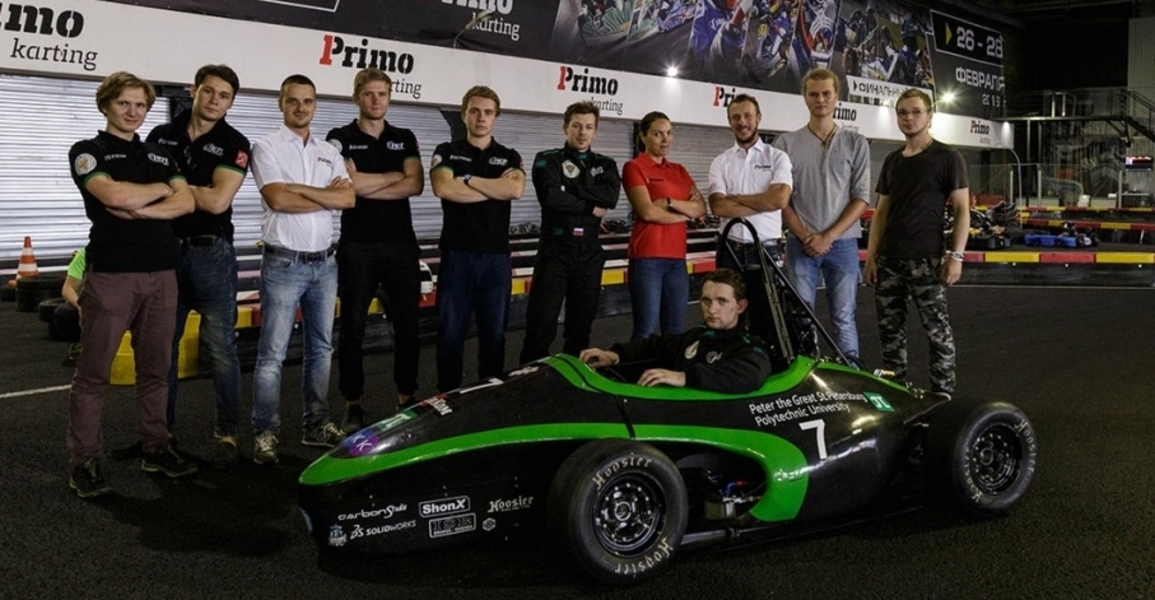- November 15, 2021
What Steven Gerasimoff (Mechanical Engineering ’17) thought was going to be a predominantly engineering internship transformed into the most valuable intellectual experience of his life.
Exploring relationships between Russians and Americans, experiencing Russian culture, and exchanging stories proved to be exponentially more rewarding and valuable than even the high-caliber engineering work he contributed to.
At MIT, Steven is an avid member of the Formula SAE Motorsports team, and has been designing vehicles since his sophomore year. He is also the son of two Russian immigrants, has been speaking Russian since birth, and is fascinated by Russian culture and way of life. He, however, never had the chance to visit the land of his ancestors and experience what the country has to offer.
When the opportunity to pursue his interest in motorsports as an internship in St. Petersburg, Russia arose, he immediately knew that it was something he had to pursue. It was a dream-come-true: a chance to travel to the country of his heritage, to work on racecars, and to form connections between students in Russia and the U.S.A.
HELPING TO GET A NEW PROJECT OFF THE GROUND
During the time that Steven spent in Russia, he was able to offer advice and insight into how the Russian team designs its vehicle and operates its team. He worked as a mechanic on the car and helped prepare the vehicle for testing and competition in early September, 2016.
In addition to getting his hands dirty in the workshop, Steven also was tasked with helping to get a new project off the ground in the university: the design of a vehicle to compete in the World Solar Challenge in 2017. This car would be the first of its kind in Russia and has already attracted much attention from the Russian media and press.
Steven began working on a preliminary overall system design, completed important initial calculations needed to characterize the vehicle, and then began actually modeling the car in software and designing subsystems. He also helped the team write correspondences to media and sponsors and participated in press conferences and interviews to help promote the project both within the university, and to the entire country. In the end, Steven completed a full design and analysis of the solar car suspension system, and has allowed the team to move to the next phase of development and stay on track to have the car completed in the spring.
UNDERSTANDING RUSSIA AS AN ESSENTIAL PART OF MISTI INTERNSHIP
But the engineering aspect of his time abroad was only one part of the entire immersion experience. What Steven really set out to do during this internship was to try and understand the perception of America in the minds of Russian youth.
Steven is at times consumed by America’s complex relationship with Russia, especially the origins of conflict between the two nations, and is keen to understand why the two have failed to find a common language throughout their history. “I strongly believe that an improvement in Russian-American relations is paramount to global stability and security. It is a subject that is constantly drowned in the media in both nations by provocative reporting, and it is something that is a very achievable diplomatic goal in the near future,” he believes.
After spending time with students, locals, parents, and total strangers in St. Petersburg, Steven was astounded at the similarities between the Russian and American people. “There were some clear cultural and social differences, but overall, we are not as different as we like to believe, or as hostile to each other as the government and media portrays us to be,” he argues.
This fact was stunning, and only served to fuel Steven’s interest into the political relationship between Russia and America. It has inspired him to help bridge the divide between the U.S.A. and Russia by any means possible, regardless how small.
Although Steven left the country with a completely renewed understanding of Russian culture and a broadened global perspective on human relationships, he was left utterly puzzled as to why even in this day in age there is so much animosity between the two nations. He hopes that academic exchanges like his will flourish in the future, and that these small acts of connection, collaboration, and friendship will add up to build a more peaceful and understanding future for Russia, the United States, and the entire world.
This internship was made possible thanks to the financial support of American Councils for International Education.
